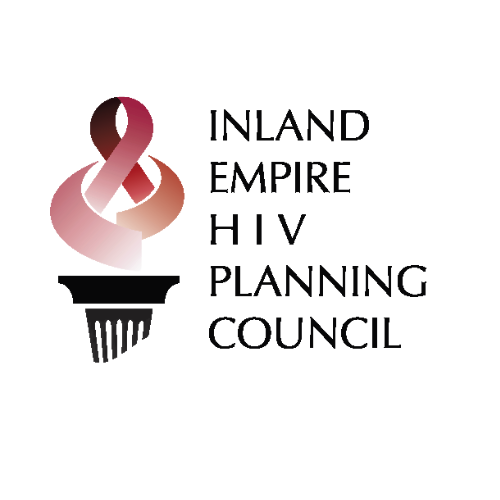Positive Women’s Network Covid-19 Resources
Dear PWN family,
Even in the best of times, cisgender and transgender women living with HIV are disproportionately vulnerable to intimate partner violence (IPV): 55% report having experienced IPV in their lives, twice the rate of women more generally.
In the current context of the COVID-19 pandemic and the resulting stay-at-home orders, the danger is exacerbated by financial distress, the inability to get out of harm’s way by leaving the house, the cancellation of in-person services and the closure of facilities typically available to people escaping IPV, such as domestic violence shelters.
While there are no easy answers, PWN, with the support of our partners at National Network to End Domestic Violence, has produced and curated some resources for women living with HIV experiencing IPV (or coping with the trauma of past IPV) and for HIV and IPV service providers during this extraordinarily difficult time.
VISIT THE IPV/HIV/COVID-19 RESOURCE CENTER
The IPV/HIV/COVID19 resource center contains information, multimedia resources, and tools for women living with HIV experiencing IPV (or coping with trauma from past IPV) and friends and family who want to help them; for care and service providers; and for advocates who want to advocate for systemic solutions to make women living with HIV less vulnerable to IPV and other forms of violence in the first place.
The resources shared include:
helplines
tools to make safety plans
directories of state resources
recorded webinars
video interviews with survivors of IPV living with HIV
blogs written by survivors that provide important insights on the root causes and effects of IPV and on how an HIV diagnosis and other mental health conditions intersect and complicate safe escape from IPV
and more.
If you have good resources that have not been included in this resource center, please send them to me at jennie@pwn-usa.org.
With love, light, and solidarity during this incredibly challenging time,
Team PWN
Positive Women's Network - USA is a national membership body of women living with HIV and our allies that exists to strengthen the strategic power of all women living with HIV in the United States. Founded in 2008 by 28 diverse HIV-positive women leaders, PWN-USA develops a leadership pipeline and policy agenda that applies a gender lens to the domestic HIV epidemic grounded in social justice and human rights.
Every day we inspire, inform, and mobilize women living with HIV to advocate for changes that improve our lives and uphold our rights. In addition to federal advocacy, PWN-USA supports regional organizing and leadership development at a local and state level.
For Immediate Release
April 9, 2020
Contacts: Partnership of HIV Service Organizations | covid@aidsunited.org
HIV Leadership Informs People Living with HIV about the Impact of COVID-19
Leading HIV organizations unite to ensure people with HIV receive detailed & culturally responsive information regarding COVID-19
April 9, 2020 (Nationwide) – In response to the COVID-19 pandemic, 10 national, community-centered HIV service & advocacy organizations partnered to create a resource guide focused on supporting people living with HIV (PLHIV). The COVID-19 and People Living with HIV: Frequently Asked Questions document provides clear and culturally responsive information to ensure PLHIV and communities disproportionately impacted by HIV have a reliable resource for the latest information to help them protect and take care of themselves.
The resource guide reflects the clinical practices and information currently available put forth by the Centers for Disease Control & Prevention (CDC), the World Health Organization (WHO), the Infectious Diseases Society (IDSA), the HIV Medicine Association (HIVMA), health departments and other local, national, and global public health entities. The COVID-19 and People Living with HIV: Frequently Asked Questions document will be updated regularly as more information is learned about COVID-19, the impact of co-infection of COVID-19 and HIV on PLHIV, and the development of available vaccines and treatments for this coronavirus.
“Our organizations agreed it was critical to develop a well-informed resource for people with HIV about COVID-19, and we therefore are pleased to release this document today,” remarked Murray Penner, Executive Director, North America, for Prevention Access Campaign/U=U. "People living with HIV have specific healthcare needs and are understandably anxious about our health and that of our loved ones. We hope that this factsheet will help provide accurate, up-to-date information about how the COVID-19 pandemic may affect our communities - and in sharing resources for support," said Naina Khanna, Executive Director of Positive Women’s Network – USA.
“The organizations creating this much-needed resource bring critical perspectives and expertise about the health and well-being of people living with HIV in this pandemic, and our partnership on it is a model for how our community can support each other in surviving the COVID-19 crisis.,” said Jesse Milan, Jr., President & CEO of AIDS United.
List of collaborating HIV Service/Advocacy Organizations who created COVID-19 and People Living with HIV: Frequently Asked Questions (in alphabetical order)
AIDS United | HIV Medicine Association | Latino Commission on AIDS | NASTAD | NMAC | Positive Women’s Network – USA | Prevention Access Campaign | TransLatin@ Coalition | US PLHIV Caucus | The Well Project
Health Care Practice Tip - April 2020
Have questions about how to access health care during the coronavirus (COVID-19) pandemic? With partners, we put together the regularly updated
Health Consumer Alliance (HCA) coronavirus website devoted specifically to this topic with answers to your FAQs, including:
Do I have to pay for coronavirus testing and screening? (Quick answer: No!)
Do Medi-Cal, Medicare, and other insurance cover coronavirus treatment?
Will getting coronavirus testing or treatment hurt my immigration status?
How can I get or keep Medi-Cal or Covered California during the pandemic?
Still, have questions about healthcare access during the pandemic? See Western Center’s “Accessing Health Care After Surviving a Disaster” Health Care Practice Tipt: Most disaster-related details also apply to the current COVID-19 emergency.
